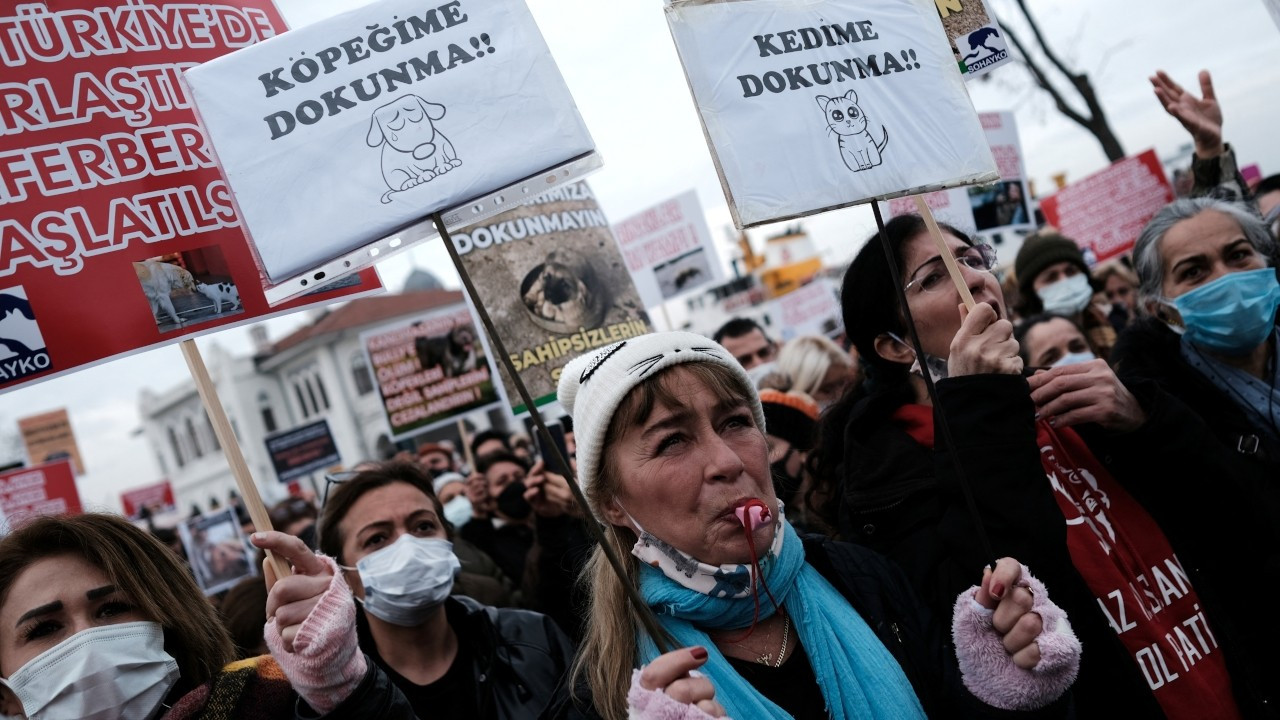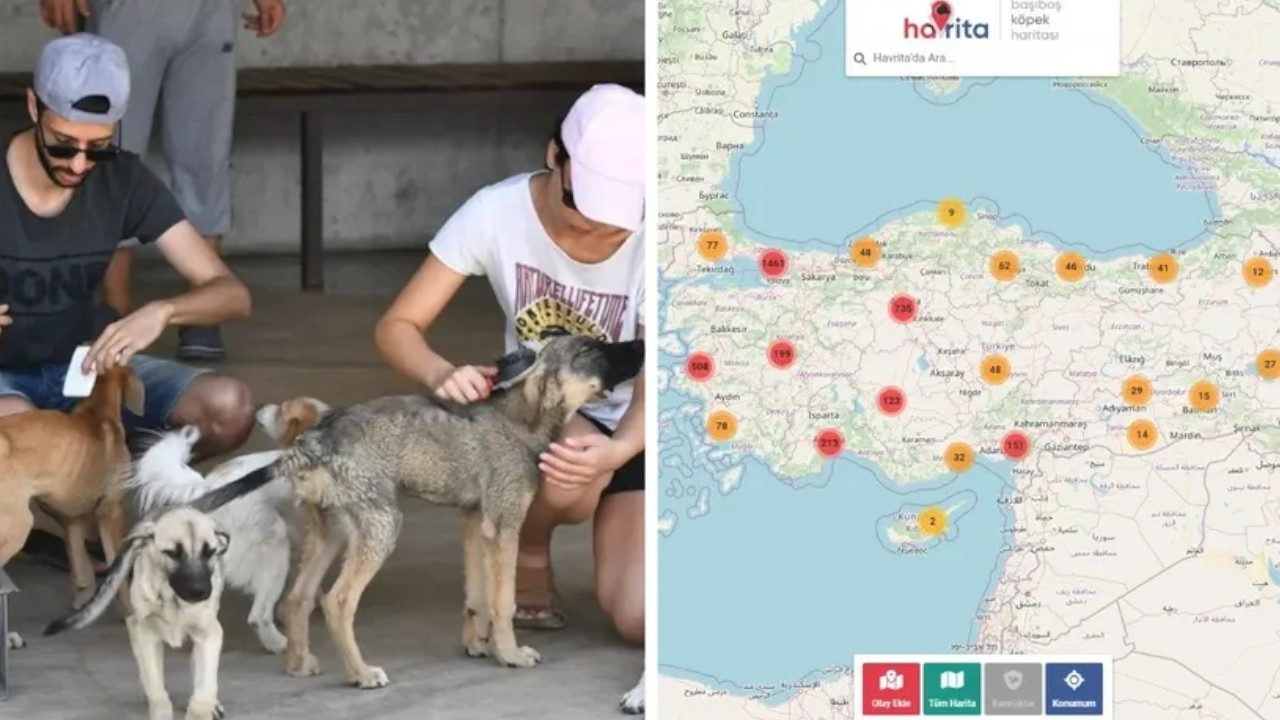Turkish parliament to vote on 'euthanasia for stray dogs' bill
Turkey’s ruling AKP has prepared a draft bill to euthanize the country's stray dog population, following concerns voiced by a section of the public. Activists and experts criticize the government for resorting to extremes after not properly enforcing humane measures like spay and neutering.
Meral Candan / Gazete Duvar
The ruling Justice and Development Party (AKP) of Turkey is considering to amend the Animal Rights Law to allow euthanasia for stray dogs.
The amendment is expected to arrive at the parliament for a vote soon after President Recep Tayyip Erdoğan demanded urgency from the party.
AKP sources highlighted that current methods like rehabilitation, sterilization, and shelters had not yielded results, noting the continued rise in street dog populations and the growing public health risks to online news outlet Ekonomim.
AKP officials explained that the new regulation would require each municipality to photograph dogs in their shelters and post them on a website for adoption. Dogs not adopted within 30 days would be euthanized via lethal injection.
The euthanasia method would be carried out “compassionately, painlessly," maintained the AKP sources.
As the issue has occasionally risen to the headlines over the years, animal welfare advocates and protection associations have consistently argued that effective sterilization and rehabilitation were the solutions.
Duvar asked Dr. Gülay Ertürk, President of the Veterinarians Association, if the costs were a reason for not preferring sterilization. Ertürk confirmed the costs involved, adding that the current control system required the installation of a microchip, administering parasitic medication, and rabies vaccination racked up considerable costs.
However, the Animal Rights Law, last revised in 2021, mandated municipalities to allocate 0.5% of their finalized budgets over three years for animal shelters and rehabilitation. This rate was set at 0.3% for metropolitan municipalities.
Ertürk questioned whether municipalities allocated the required amount, demanding transparent budget breakdowns.
Another issue concerned the establishment of shelters as mandated by law. Accordingly, municipalities with populations between 25,000 and 75,000 must establish shelters by the end of 2024, while those exceeding 75,000 must do so by the end of 2022. Ertürk noted that municipalities were still yet to fulfill these obligations.
Furthermore, shelters were not a sustainable solution either. Even the smallest shelters would require vast areas for thousands of dogs, which meant significant construction costs.
The only solution for Ertürk was therefore sterilizing, vaccinating, and releasing the animals back to where they were found. Only dangerous dogs should be identified by animal welfare volunteers and housed in neighborhood care centers.
Ertürk warned that without allocating the necessary budget and taking precautions, uncontrolled population growth would continue.
Haydar Özkan, Vice President of the Animal Rights Federation (HAYKONFED), referenced the historical "Hayırsızada Incident," recalling how 80,000 dogs in Istanbul were sent to the deserted Sivriada on the Marmara Sea in 1910, where they perished from hunger and thirst.
Following an earthquake in 1912, people believed the disaster was caused by the curse of the abandoned dogs, leading to the island's name change to Hayırsızada (Desolate Island).
Özkan emphasized learning from history and advocated for effective sterilization. He noted that 1,100 of the 1,394 municipalities in Turkey lacked shelters, and those that did have shelters lacked effective sterilization.
Özkan described the project as a "massacre under the guise of euthanasia," criticizing the Ministry of Agriculture and Forestry bureaucrats for blaming animals for their failure to control a problem.
On the other side, Murat Pınar, President of the Safe Streets and Right to Life Association, welcomed the government's initiative. The group has long been campaigning to take strays away from streets by any means necessary.
Pınar said that the group supported families who lost members in stray animal attacks or related accidents, after experiencing such loss themselves.
The amendment draft was proof of their success. Pınar held that human rights should be prioritized, and the government must ensure safe streets for the public.
According to Pınar, the main issue with the process so far was the “overbearing” demands from the animal rights advocates. Many problems in Turkey have not allowed for such public confrontation, he complained.
“The state must rule with its iron fist and take decisive action for public safety, without heeding to anyone else’s opinion,” he said.
No official data exists regarding the number of stray animal-related injuries and deaths in Turkey. The Safe Streets and Right to Life Association put the number of deaths between March 2022 to December 2023 at 92.
Meanwhile, increased reporting on incidents could sway public opinion on the issue. With the euthanasia amendment taking headlines, the state-run Anadolu News Agency (AA) published 19 stories on past, potential, and actual stray dog attacks in May, 16 of them in the last week. Such reports averaged seven in the past months.
Turkey is also home to a staunch animal rights activism movement, whose influence blocked euthanasia from entering the Animal Rights Law in 2021. Advocates hold that peaceful co-existence is possible with proper sterilization-vaccination efforts and public awareness on how to approach animals.
(English version by Ayşenaz Toptaş)


 Turkish animal defenders protest government's persecution of stray dogsDomestic
Turkish animal defenders protest government's persecution of stray dogsDomestic Turkish court blocks access to map showing location of stray dogs after public outcryDomestic
Turkish court blocks access to map showing location of stray dogs after public outcryDomestic Turkish bar associations sue singer Yıldız Tilbe over call for stray dogs 'to get poisoned'Domestic
Turkish bar associations sue singer Yıldız Tilbe over call for stray dogs 'to get poisoned'Domestic